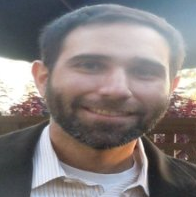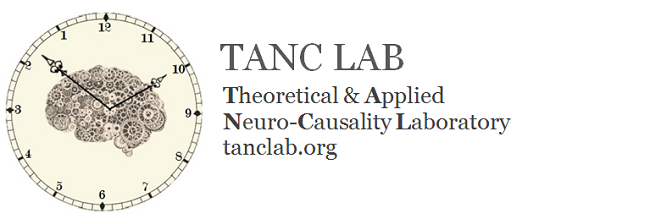Dr. Michael Franklin
CFO/Director of Research and Development
Dr. Michael Franklin is an Assistant Project Scientist in the Department of Psychological and Brain Sciences at University of California, Santa Barbara. Dr. Franklin completed his doctorate training in cognitive psychology in 2008 at the University of Michigan. His research uses a wide range of methodologies (behavioral, pupillometry, EEG, fMRI) to explore different aspects of consciousness and cognition. Most relevant to the work at TANC Lab, he has spent a number of years developing a retrocausal paradigm to predict the outcome of online roulette spins.
Ph.D. University of Michigan, Psychology (2008)
M.S. Tulane University, Psychology (2003)
B.S. University of Wisconsin-Madison, Psychology and Zoology (1999)
2011 - Present: U.C. Santa Barbara Assistant Project Scientist
2008 - 2011: U.C. Santa Barbara Postdoctoral Fellow
META (Memory Emotion Thought Awareness) Laboratory
2002: Princeton University Research Assistant
Engineering Anomalies Research Laboratory
1999 - 2000: Stanford University Research Assistant
Psychology Department, Sleep and Dream Laboratory
1998 - 1999: University of Wisconsin Research Assistant
Psychiatiry Department, Sleep Laboratory
1997 - 1998: University of Wisconsin Research Assistant
Wisconsin Regional Primate Center
Representative Publications
Franklin, M.S., Baumgart, S.L., & Schooler, J.W (in press). Future directions in precognition
research: More research can bridge the gap between skeptics and proponents, Frontiers in
Psychology: Perception Science
Franklin, M.S., Mrazek, M.D., Anderson, C.L., Smallwood., J., Kingstone, A., &
Schooler., J.W. (in press). Tracking distraction: The relationship between mind-wandering, meta-awareness, and attention-deficit/hyperactivity disorder symptomatology. Journal of Attention Disorders.
Franklin, M. S., Broadway, J. M., Mrazek, M. D., Smallwood, J., & Schooler, J. W. (2013).
Window to the wandering mind: pupillometry of spontaneous thought while reading. Quarterly Journal of Experimental Psychology, 66(12), 2289–2294. doi:10.1080/17470218.2013.858170
Mrazek, M. D., Franklin, M. S., Phillips, D. T., Baird, B., & Schooler, J. W. (2013).
Mindfulness Training Improves Working Memory Capacity and GRE Performance While Reducing Mind Wandering. Psychological Science. doi:10.1177/0956797612459659
Franklin, M., Smallwood, J., & Schooler, J. (2011). Catching the mind in flight: Using behavioral indices to detect mindless reading in real time. Psychonomic Bulletin & Review, 18(5), 992–997. doi:10.3758/s13423-011-0109-6
Franklin, M.S., Jonides, J. (2009). Order and magnitude share a common representation in parietal cortex. Journal of Cognitive Neuroscience. 21 (11), 2114-2120.
Franklin, M.S., Rattray, K., Moore, K.S., Moher, J., Yip, C.Y., & Jonides, J. (2008). The Effects of Musical Training on Verbal Memory. Psychology of Music. 36(3), 353-365
Franklin, M.S., Dien, J., Neely, J.H., Huber, E., and Waterson, L.D. (2007) Semantic Priming Modulates the N400, N300, and N400RP. Clinical Neurophysiology, 118, 1053-1068.
Franklin, M. S. and Zyphur, M. J. (2005). The role of dreams in the evolution of the human mind. Evolutionary Psychology, 3:59-78.
